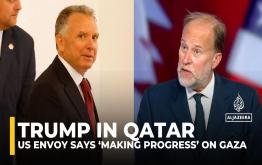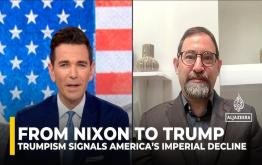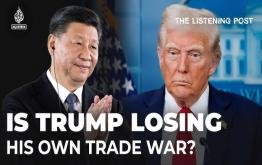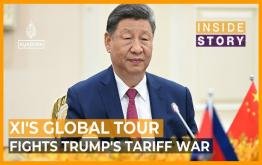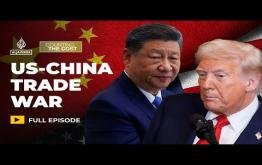Cutting the TV cord: The Netflix-driven online phenomenon
- By IBTN News Bureau --
- 09 July 2018
Subscription video service Netflix is now the most popular US platform for watching entertainment on TV. According to a recent survey by Wall Street firm Cowen & Co, it has now overtaken traditional broadcast, cable television and other online streaming services like Youtube and Amazon.
With its own studio in Hollywood, Netflix is now one of the world's biggest film and TV producers. It boasts collaborations with some of television and cinema's most renowned names, such as a multi-year production deal with former US president and first lady, Barack and Michelle Obama.
But are Netflix and co steering audiences away from "traditional" broadcast viewing forever, or is this a long-stay fad, bound to disappear with the next carousel of trends? And does Netflix' reach extend beyond US consumer choices?
Daniel Ives, chief strategy officer and head of Technology Research at New York-based GBH Insights, discusses how companies such as Netflix, Apple, Amazon and Disney are spending big on content and talent to gain audience share in what some are calling "the post-TV era".
"The cord-cutting phenomenon is one that will continue to accelerate," says Ives. "It's really about content. Netflix spent $8bn [≈ net worth of Steve Jobs, founder of Apple, 2011] on content this year; that's really created a content arms war and you've sort of seen this across the board with the consolidation across the sector between AT&T, Time Warner, Disney and Comcast ... it all speaks to "content is king" in this cord-cutting world."
Where Bollywood and other international cinema industries are concerned, Ives says Netflix is essentially unstoppable. With plans for expansion into 100 different markets - and a subscription forecast of 100 million in the next two years - the challenge now lies in creating content that will drive audiences to become loyal viewers.
"Ultimately, the only way you drive international subscriber growth is international content," says Ives. "Whether its the Middle East, Africa or other parts of the world you're trying to penetrate ... it has created a new age for content and Netflix recognises that as they expand internationally, content is the key."






